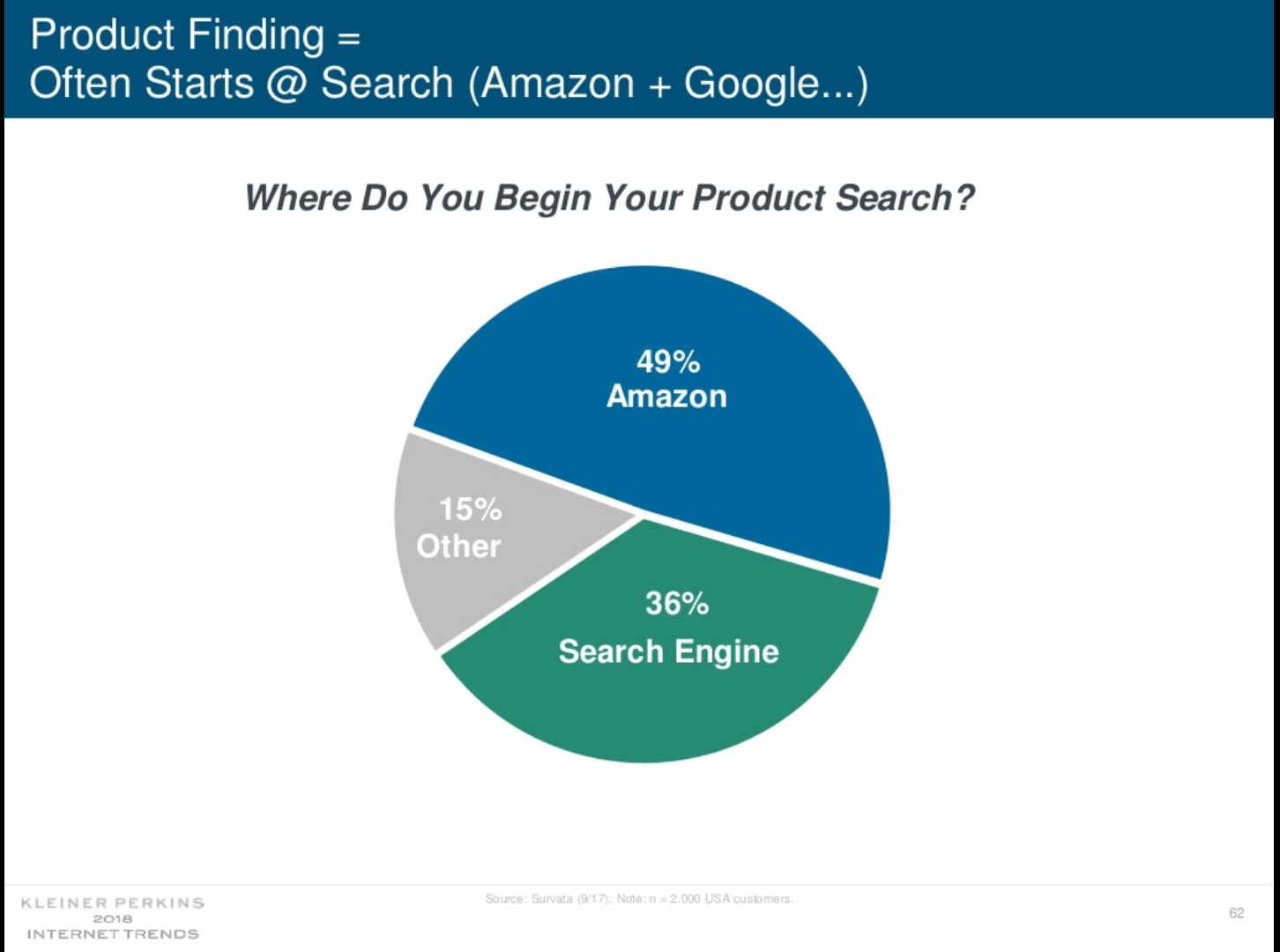Author: Robert Brady / Source: Practical Ecommerce
On May 30, Mary Meeker of Kleiner Perkins Caufield & Byers, the venture capital firm, delivered her Internet Trends 2018 report at the Code Conference in Rancho Palos Verdes, Calif. This report is an annual tradition that is watched closely by the Silicon Valley crowd. She mowed through nearly 300 slides. A few of them relate to pay-per-click advertising and ecommerce.
Ecommerce Trends
Ecommerce growth continues. In 2017 U.S. ecommerce sales grew 16 percent over 2016 — exceeding $400 billion. While that is a huge number, it represents just 13 percent of all U.S. retail sales. Thus there is still much remaining growth.
Amazon represents 28 percent of ecommerce sales and 49 percent of initial product searches.

Mobile is taking over. In 2017 the average adult internet user in the U.S. spent 5.9 hours daily with digital media. That’s up from 5.6 hours in 2016. But the more telling statistic is that 3.3 of those hours (over 50 percent) were on mobile devices.
Mobile payments are growing. As internet penetration increases globally — 3.6 billion people (half the world’s population) are now internet users — mobile payments are increasing dramatically as well. In China, 500 million residents use mobile payment technology. Considering that nearly 1.5 billion smartphones were sold worldwide in 2017, the growth potential for mobile payments is huge.
Voice devices. There were roughly 30 million Amazon Echo users in the U.S. by the end of 2017. However, I’m still unconvinced that the user experience of voice assistants can facilitate most online transactions. It may be possible for repeat purchases of consumable items. But online purchases often include multiple touch points that can’t be easily accomplished in a voice-controlled experience (without driving the user batty).
The privacy paradox. Online shopping…
Audience Team
The digital audience insights you need to build, manage and market to your digital audiences.

